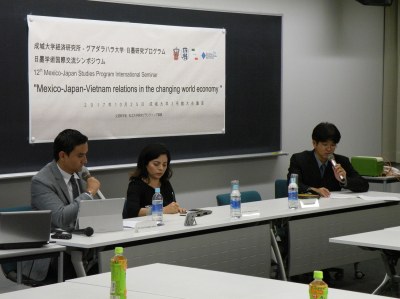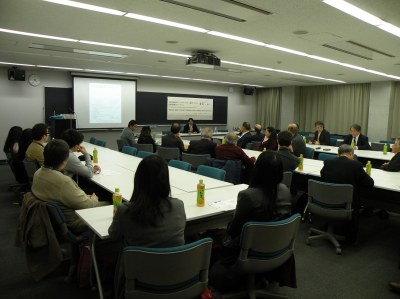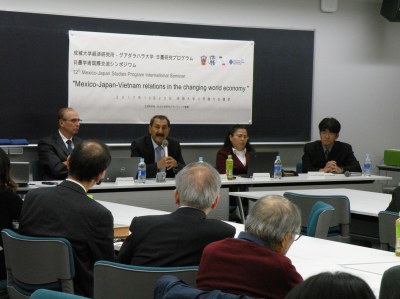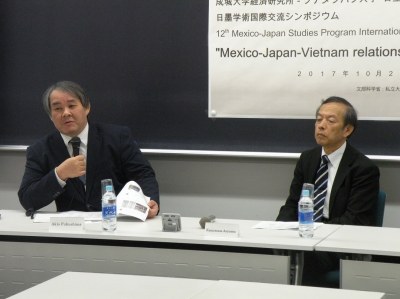

NEWS
2017.11.08
Tomohiro Kakihara, Center of Economic and Administrative Sciences, University of Guadalajara
<Synopsis>
On Wednesday, October 25, 2017, as part of Seijo University’s Research Branding Program for Private Universities, Seijo University’s Institute for Economic Studies joined the University of Guadalajara to co-host the 12th International Seminar of the latter’s Mexico-Japan Studies Program. This seminar, titled “Mexico-Japan-Vietnam Relations in the Changing World Economy,” featured a broad Pacific-Rim perspective, which included Vietnam, Japan, and Mexico. Four themes were discussed:
<Report>
For the first theme, Leo Guzmán-Anaya (University of Guadalajara) reported his research on the agglomeration of Japanese auto businesses in Mexico and discussed the outlook for direct investment. Noting that Mexico has been significantly affected by Trump’s renegotiation of the North American Free Trade Agreement (NAFTA), Guzmán-Anaya argued that suppliers in Mexico must raise their performance and that businesses might start investing in a broader range of countries, such as those in Europe and South America.
For the second theme, presentations were delivered by Jesús Arroyo Alejandre, Salvador Carrillo Regalado, and Martha Elena Campos Ruiz (all from the University of Guadalajara). These presenters discussed the results of a survey among Japanese residents/immigrants in Mexico. They also discussed the survey’s findings on the numbers of Japanese firms and residents, and how these statistics relate to trends in Japanese investments into Mexico, as well as findings on the quality of life of Japanese residents/immigrants in Guanajuato. Notably, over 86% of the survey respondents said they had no particular crime/safety concerns, although the results did highlight other causes for concern. Many respondents did, however, express concern about cultural assimilation and the education environment for girls.
For the third theme, a presentation was delivered by Taku Okabe (University of Guadalajara). Okabe presented the findings of his survey on industrial property rights in Mexico. These findings concerned patent applications and grants in Mexico, as well the people who buy pirate copies and why they do so. The professor underscored the need to protect industrial property rights under the increasingly globalized climate.
For the fourth theme, Akio Fukushima (Institute for Economic Studies, Seijo University) and Kazumasa Aoyama (Tokyo Fuji University) discussed recent trends in Vietnam-based firms, in relation to globalization. They noted that many firms in Vietnam have started operating more independently, as the country becomes increasingly capitalist. However, they also argued that corporate systems and strategies tend to be under-developed, owing to the lack of business-management expertise.
Mexico, Vietnam, and other newly industrialized or developing countries should actively attract foreign investment, as such investment stimulates technological and economic development. However, the more countries open their markets to foreign capital, the more they accelerate globalization, which in turn generates intense competition, a situation that needs to be addressed. After the presentations, the attendees spiritedly discussed the countries’ challenges and outlooks against the backdrop of globalization.



